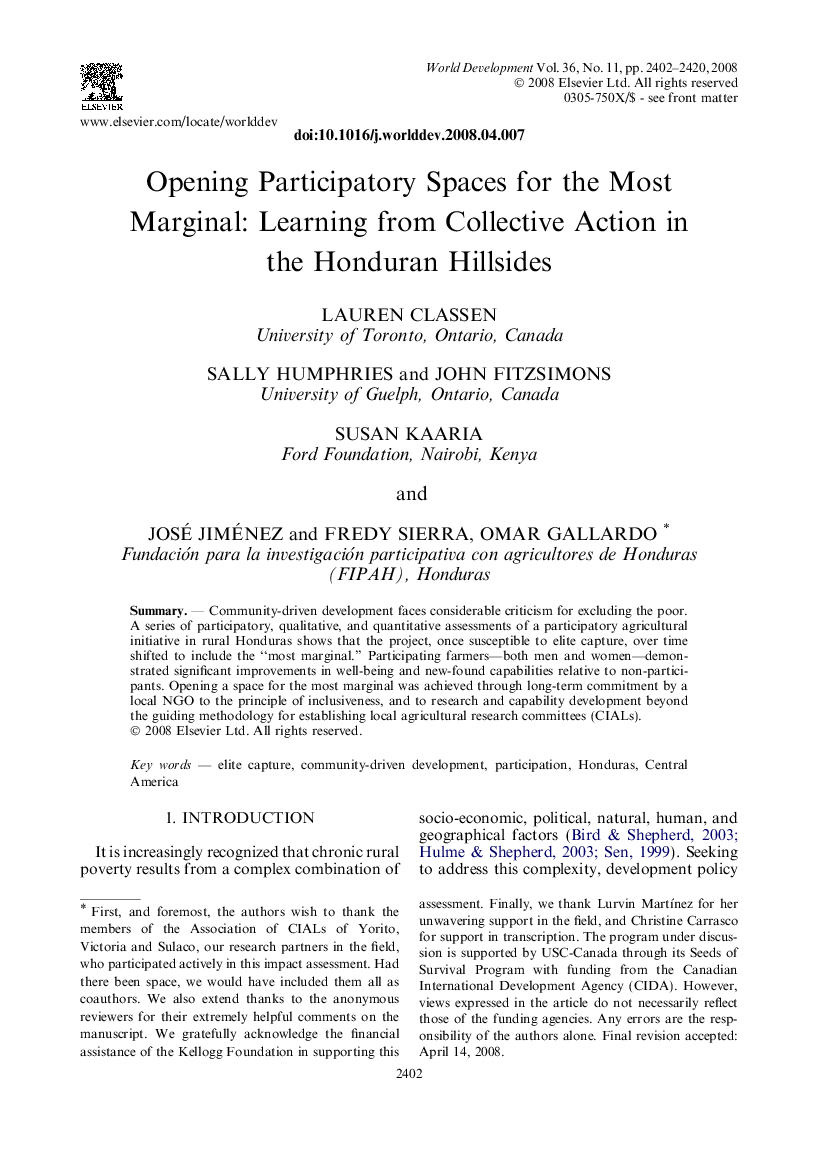| Article ID | Journal | Published Year | Pages | File Type |
|---|---|---|---|---|
| 989372 | World Development | 2008 | 19 Pages |
Abstract
SummaryCommunity-driven development faces considerable criticism for excluding the poor. A series of participatory, qualitative, and quantitative assessments of a participatory agricultural initiative in rural Honduras shows that the project, once susceptible to elite capture, over time shifted to include the “most marginal.” Participating farmers—both men and women—demonstrated significant improvements in well-being and new-found capabilities relative to non-participants. Opening a space for the most marginal was achieved through long-term commitment by a local NGO to the principle of inclusiveness, and to research and capability development beyond the guiding methodology for establishing local agricultural research committees (CIALs).
Related Topics
Social Sciences and Humanities
Economics, Econometrics and Finance
Economics and Econometrics
Authors
Lauren Classen, Sally Humphries, John FitzSimons, Susan Kaaria, José Jiménez, Fredy Sierra, Omar Gallardo,
